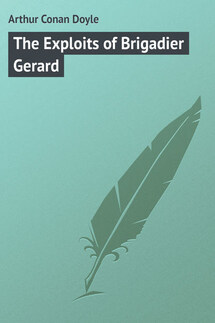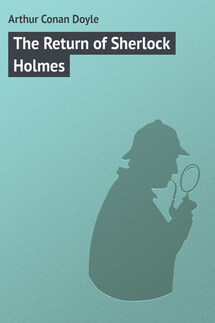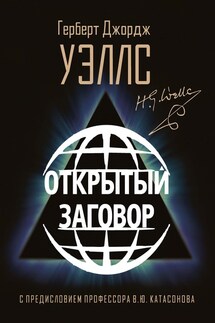Round The Red Lamp - страница 15
"No."
A trace of sternness came into the large brown eyes.
"I need not point out to you that unless the most absolute frankness – "
The patient sprang from his chair. "So help me God!" he cried, "I have nothing in my life with which to reproach myself. Do you think that I would be such a fool as to come here and tell you lies. Once for all, I have nothing to regret." He was a pitiful, half-tragic and half-grotesque figure, as he stood with one trouser leg rolled to the knee, and that ever present horror still lurking in his eyes. A burst of merriment came from the card-players in the next room, and the two looked at each other in silence.
"Sit down," said the doctor abruptly, "your assurance is quite sufficient." He stooped and ran his finger down the line of the young man's shin, raising it at one point. "Hum, serpiginous," he murmured, shaking his head. "Any other symptoms?"
"My eyes have been a little weak."
"Let me see your teeth." He glanced at them, and again made the gentle, clicking sound of sympathy and disapprobation.
"Now your eye." He lit a lamp at the patient's elbow, and holding a small crystal lens to concentrate the light, he threw it obliquely upon the patient's eye. As he did so a glow of pleasure came over his large expressive face, a flush of such enthusiasm as the botanist feels when he packs the rare plant into his tin knapsack, or the astronomer when the long-sought comet first swims into the field of his telescope.
"This is very typical – very typical indeed," he murmured, turning to his desk and jotting down a few memoranda upon a sheet of paper. "Curiously enough, I am writing a monograph upon the subject. It is singular that you should have been able to furnish so well-marked a case." He had so forgotten the patient in his symptom, that he had assumed an almost congratulatory air towards its possessor. He reverted to human sympathy again, as his patient asked for particulars.
"My dear sir, there is no occasion for us to go into strictly professional details together," said he soothingly. "If, for example, I were to say that you have interstitial keratitis, how would you be the wiser? There are indications of a strumous diathesis. In broad terms, I may say that you have a constitutional and hereditary taint."
The young baronet sank back in his chair, and his chin fell forwards upon his chest. The doctor sprang to a side-table and poured out half a glass of liqueur brandy which he held to his patient's lips. A little fleck of colour came into his cheeks as he drank it down.
"Perhaps I spoke a little abruptly," said the doctor, "but you must have known the nature of your complaint. Why, otherwise, should you have come to me?"
"God help me, I suspected it; but only today when my leg grew bad. My father had a leg like this."
"It was from him, then —?"
"No, from my grandfather. You have heard of Sir Rupert Norton, the great Corinthian?"
The doctor was a man of wide reading with a retentive, memory. The name brought back instantly to him the remembrance of the sinister reputation of its owner – a notorious buck of the thirties – who had gambled and duelled and steeped himself in drink and debauchery, until even the vile set with whom he consorted had shrunk away from him in horror, and left him to a sinister old age with the barmaid wife whom he had married in some drunken frolic. As he looked at the young man still leaning back in the leather chair, there seemed for the instant to flicker up behind him some vague presentiment of that foul old dandy with his dangling seals, many-wreathed scarf, and dark satyric face. What was he now? An armful of bones in a mouldy box. But his deeds – they were living and rotting the blood in the veins of an innocent man.









